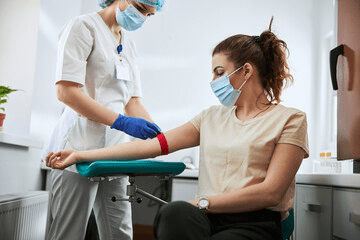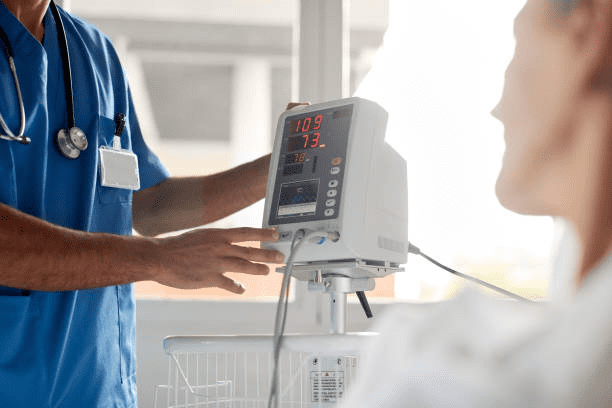| Course | Start Date | Class Times |
|---|---|---|
| Clinical Medical Assistant | October to Spring 2025 | Morning or Evening |
| Phlebotomy Technician | October to Spring 2025 | Morning or Evening |
| Patient Care Technology | October to Spring 2025 | Morning or Evening |
| EKG | October to Spring 2025 | Morning or Evening |
| CPR | Every Saturdays | 10 a.m to 2 p.m |
The Patient Care Technology Program
A patient care technology course typically includes topics related to the use of technology in healthcare settings, with a focus on patient care.
All payments including registration are non refundable
Find out more about program discounts and monthly payment plan options by speaking to our expert Career Advisors today!
Patient Care Technology Training: A small Investment for Infinite Success
Patient care technician (PCT) is a healthcare professional who works under the supervision of registered nurses (RNs) and other medical staff to provide basic care to patients. A PCT is responsible for assisting patients with their daily activities, such as bathing, dressing, and eating, and monitoring their health status. PCTs also perform basic medical procedures such as taking vital signs, collecting specimens, and performing electrocardiograms (EKGs).
-
120 Coursework Hours
(30 Venipuncture + 15 Capillaries) - Complete Course in 3 Months
- $37,380 Median Salary
- CPT Certification Prep

Expand your full potential for a more fulfilling life and career. We’ll help.


This Could Be an Excellent Job for You
If the sight of blood never makes you woozy, if trypanophobia (the fear of needles) has no effect on you, and if you like helping people, then you’ll love being a Patient Care Technology technician!
6 Reasons to Complete Your Patient Care Technology Training With CMEDTraining
Hands On Learning.
Real world classes for real people. Learn during instructor led sessions with others to solidify your education.
Ask for help anytime.
Real people support you every step of the way via phone, live chat, and email.
Get certified.
Our career training provides the knowledge and certification prep materials you need to sit for the CPT certification exam.
Get in and out quickly.
Gain all the Patient Care Technology training you’ll need to prepare to pass the CPT certification exam and start job hunting.
Jumpstart your medical career.
Becoming a Patient Care Technology technician is a quick and affordable entry point into healthcare. It sets you up to move up and build a lifelong career in medicine.
Learn more with externship opportunities
Our Patient Care Technology Technician program includes an exclusive externship experience that provides real-world exposure.
1. Start today.
Begin your training (and transformation) right now.
2. Learn your way.
Complete your training within 3 Months Onsite Lecture and Practice.
3. Get hire-ready.
Prepare to take valuable certification exams.
Program Details
Our Patient Care Technology Technician program has two simple goals: adapt to your everyday life and help you succeed. An externship is included with your Patient Care Technology Technician program to get hands-on practice, gain valuable knowledge, and apply your training through exposure in the healthcare field. When you become eligible, our team will coordinate to secure all required documentation and work to connect you with one of our participating partner sites.

What You’ll Learn
Our Patient Care Technology Technician training is an effective way to reset your career and prospects. With what you’ll learn throughout the program, you’ll retool yourself with valuable new skills—and priceless confidence.
Learn to recognize and understand basic anatomy with an emphasis on the cardiovascular system as well as pathophysiology and hematology testing while completing your Patient Care Technology certification.
Master venipuncture, the drawing of blood from a vein and the standard safety measures to protect from pathogen exposure.
Add the finger-prick method to your repertoire, the easier and less painful procedure that produces a drop of blood with the prick of a lancet.
Know and apply laboratory quality and safety regulations through the entire process of collecting, handling, and reporting the results of bloodwork and non-blood specimens (such as urine, stool, and cultures).
Get Trained. Get Hired.
This program includes unparalleled training, career support, and coaching, along with certification prep materials and exam fees. It’s a faster, cheaper alternative to traditional schooling.
$550 Down Payment (Full Course Price $5,500 All Payments are non refundable)





